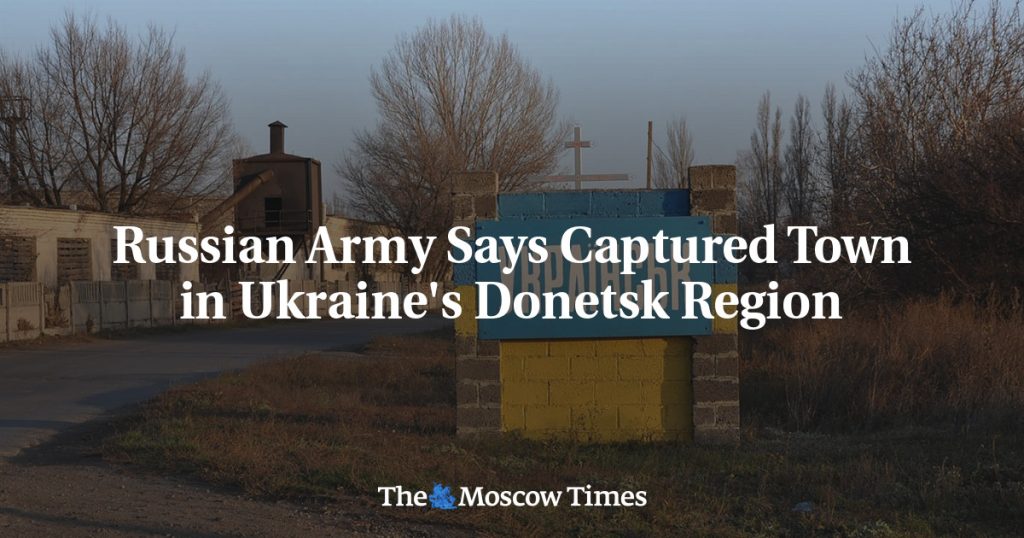Russia’s army continues to make territorial gains in Ukraine, with the capture of the town of Ukrainsk in the eastern Donetsk region being the latest conquest. The town, which once had a population of more than 10,000 residents, has now been “liberated” by Russian forces. This is part of a broader push by Moscow’s troops to control the Donetsk region, with Ukrainsk lying just 30 kilometers west of the regional capital Donetsk. Russia has also demanded that Kyiv withdraw its troops from the Donetsk, Luhansk, Kherson, and Zaporizhzhia regions as a precondition for opening peace talks.
The capture of Ukrainsk is just one in a series of successes for Russian forces, who have also claimed control of other small villages and settlements in recent weeks. On Wednesday, Moscow announced the “liberation” of the settlements of Hostre and Hryhorivka in the Donetsk region. Hostre is a small village located west of Donetsk, while Hryhorivka is near the town of Chasiv Yar. These smaller victories are part of Russia’s broader strategic goal of gaining control of key areas in eastern Ukraine, with the ultimate aim of forcing Ukraine to the negotiating table.
The ongoing conflict between Russia and Ukraine has escalated since Moscow’s full-scale invasion in February 2022. The war has resulted in numerous casualties and widespread destruction, with both sides accusing each other of war crimes. The international community has condemned Russia’s actions and imposed severe economic sanctions, but Moscow has shown no signs of backing down. Instead, Russian troops continue to advance deeper into Ukrainian territory, causing further humanitarian and geopolitical challenges.
The situation in Ukraine is complex, with deep historical, cultural, and political roots fueling the conflict. The Donetsk and Luhansk regions, where much of the fighting has taken place, have strong ties to Russia and a significant Russian-speaking population. Russia has used these connections to justify its intervention in Ukraine, claiming to protect ethnic Russians and Russian speakers from alleged persecution by the Ukrainian government. However, many Ukrainians see Russia’s actions as a violation of their country’s sovereignty and independence, leading to a fierce resistance against the Russian invasion.
The war in Ukraine has had far-reaching consequences, not only for the two countries directly involved but also for the broader international community. The conflict has strained relations between Russia and Western powers, particularly the United States and European Union, leading to a new Cold War-like standoff. It has also raised concerns about the future of global security and the effectiveness of international institutions in preventing and resolving conflicts. As the situation in Ukraine continues to deteriorate, the need for a diplomatic solution becomes increasingly urgent to prevent further escalation and suffering for the people of Ukraine.
In conclusion, Russia’s capture of Ukrainsk and other areas in eastern Ukraine represents a significant escalation of the conflict and a challenge to the international order. The ongoing war has caused immense human suffering and destruction and has deepened divisions between Russia and the West. As Russia’s forces continue to advance, the need for a peaceful resolution becomes more critical, but finding a way to end the conflict and address the underlying causes remains a daunting task. The world watches closely as the situation in Ukraine unfolds, hoping for a resolution that brings stability and peace to the region.


